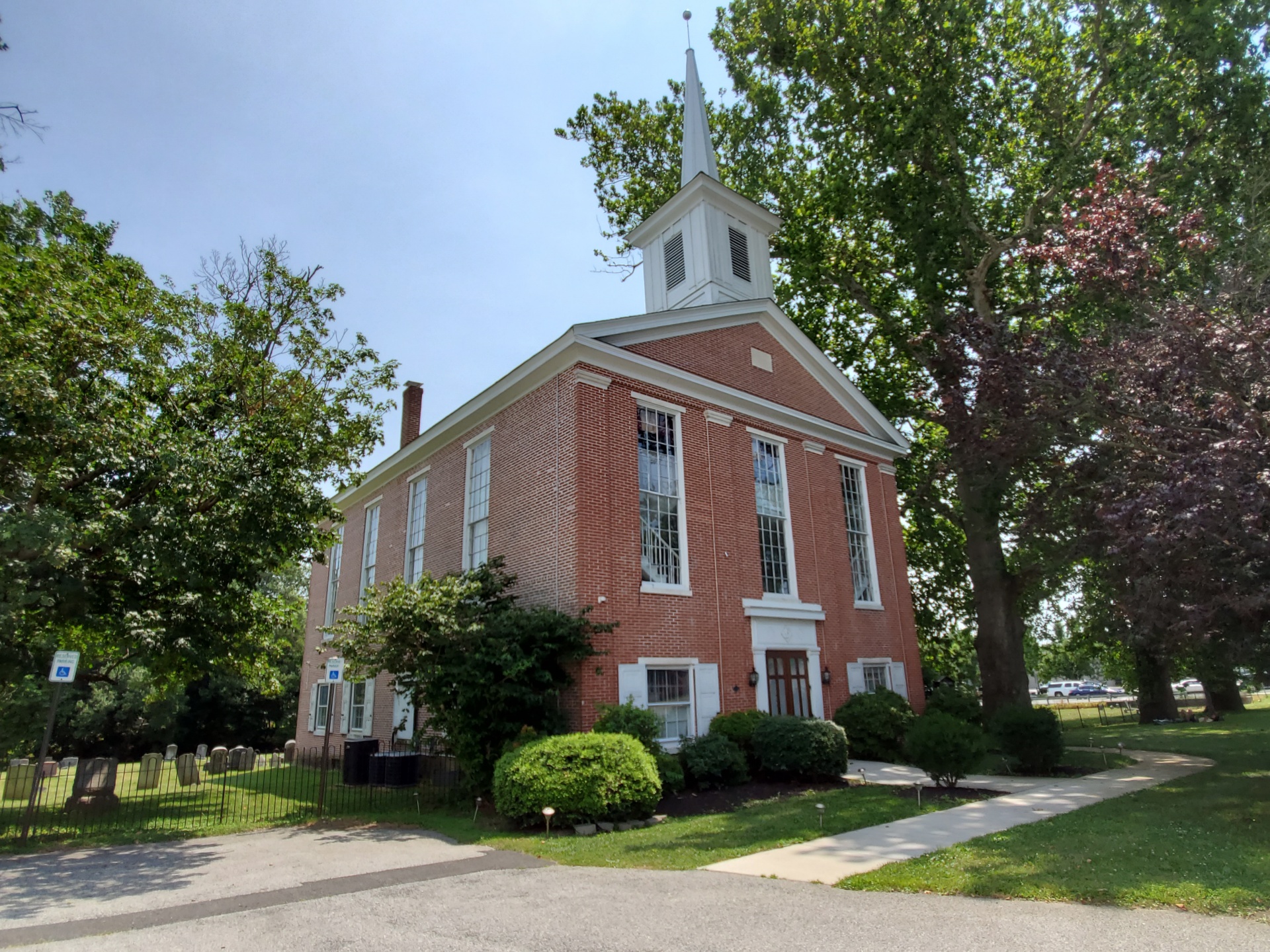(If the author links in this post are broken, please visit our Free PDF Library and click on the author’s page directly.)
When Samuel Davies — the “Apostle to Virginia” — and Gilbert Tennent were chosen as emissaries to raise funds in Europe for the College of New Jersey, Davies left his Hanover, Virginia base in September 1753 to return home to Delaware and parts surrounding, including Philadelphia and New Jersey. An entry from his journal in November 1753, records his sentiments as he traveled through the Delaware Welsh Tract of his boyhood once again:
[W]hen I past by the Places where I had formerly lived, or walked, it gave a solemn Turn to my Mind. Ah! How much I have sinned, wherever I have been! And what solemn Transactions have been between God and my Soul in these my old Walks! Visited two Grave-Yards in my Way, to Solemnize my Mind among the Mansions of the Dead. O how solemn Eternity appeared! How frail and dying the Race of Mortals! And how near my own Dissolution!
Davies was born on November 23, 1723, at what is today known as the Lum’s Mill House in Bear, Delaware. It still stands but is in great disrepair and not open to the public. It is adjacent to the Lums Pond State Park, but beyond the grass being mowed, there is little evidence that it is remembered for its mark on history.
This writer recently toured some of the old stomping grounds that Davies may have visited on that 1753 trip, including his family home. Dewey Roberts — author of Samuel Davies: Apostle to Virginia, a most valuable resource for studying the life of this great saint, particularly, his earlier years — was kind enough to make suggestions for the itinerary.
Samuel Davies’ birthplace - photo credit: R. Andrew Myers
His family was originally associated with the Welsh Tract Baptist Church in New Castle County. I was not able to visit that church on this trip. But I did visit the church that the Davies family joined after departing from the Baptist church: Pencader Presbyterian Church (originally called the Welsh Tract Presbyterian Church). It is now known as Olivet Presbyterian Church (PCUSA), but the name Pencader is still found on the church building itself as well as the at the adjacent cemetery.
Pencader (Olivet) Presbyterian Church (originally founded 1707-1710; present building established in 1852) - photo credit: R. Andrew Myers
The pastor who embraced the Davies family and counseled them through a challenging transition was likely Thomas Evans, who is buried at this location.
Historical marker - photo credit: R. Andrew Myers
I also visited other Presbyterian churches in the vicinity, including Head of Christiana — pastored by George Gillespie, who is buried at the cemetery there, as is James Laird Vallandigham, who authored a history of Pencader Presbyterian Church and a history of the New Castle Presbytery.
Head of Christiana Presbyterian Church (founded in 1706-1708; present building established in 1859) - photo credit: R. Andrew Myers
Finally, I stopped at St. Georges — pastored by WIlliam Robinson (who played such an important role in the life of Samuel Davies and may be the subject of a future post) and Davies’ “close friend” John Rodgers (Samuel Finley preached the ordination sermon for Rodgers here in 1749 and later preached Samuel Davies’ funeral sermon elsewhere in 1761).
St. Georges Presbyterian Church (present building established in 1844)- photo credit: R. Andrew Myers
One additional place visited on this trip was the site of the Duck Creek Presbyterian Church. It was a place of significance to Thomas Evans, who conducted the first worship services there in 1733. This was just a year after Martha Davies (Samuel’s mother) was forced out of the Welsh Tract Baptist Church and received spiritual counsel from Rev. Evans (see Dewey Roberts, Samuel Davies: Apostle to Virginia, pp. 31-33).
Smyrna, Delaware
Walking around the old historic buildings and graveyards, like Old Mortality (Sir Walter Scott), reminds one that Memento Mori (“Remember, you must die”) is a saying worthy to be impressed upon our thoughts, and pondered from time to time. The historical landmarks are too often in a sad state of decay, and it is greatly to be desired that they be not lost to future generations. But regardless, as Davies would say, it is eternity upon which our eyes of faith must be fixed, and while the footsteps of time have their necessary place, our chief care as we move through this world must be to ensure, by the grace of God, that these “mouldering tabernacles are become everlasting habitations.”







